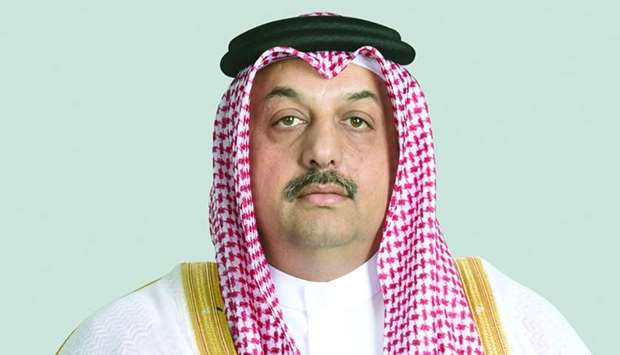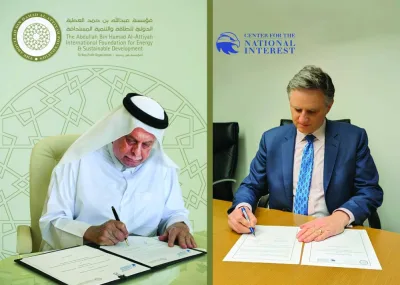HE the Minister of State for Defence Affairs Dr Khalid bin Mohamed al-Attiyah has said that the GCC is not comprised only of the three countries putting Qatar under siege, but includes all its members.
Dr al-Attiyah added that the six member countries of the council have the responsibility of rescuing whatever remains of this unique entity in the Arab world.
The Minister of State for Defence Affairs said in an interview on Monday that even if the siege countries retracted their violations against Qatar and the crisis ended, the public will never forget that the main reason behind the fabricated crisis was the hacking of Qatar News Agency (QNA) and the publishing of fabricated statements falsely attributed to His Highness the Emir Sheikh Tamim bin Hamad al-Thani. Dr al-Attiyah added that the six member countries of the council have the responsibility of rescuing whatever remains of this unique entity in the Arab world.
Dr al-Attiyah noted that the only way to save the GCC was through dialogue, as mentioned in the speech of His Highness the Emir which said that the Emir of Kuwait is the sponsor for any diplomatic dialogue. He noted that any dialogue is subject to lifting the siege and not infringing on Qatar's sovereignty.
Dr al-Attiyah also stressed that Qatar cannot be accused of interfering with other countries' internal affairs, noting that interference was ongoing in Qatar's affairs but it remained patient to protect the GCC due to its importance in the West and East as it is the last pillar of stability in the Middle East.
The minister said that it was difficult to explain why the besieging countries took those measures against Qatar at a time when there was plenty of meetings between the leaders of Qatar and Saudi Arabia.
He said that they did not sense any tension following the Riyadh summit, adding that they did not realise what was being conspired against them except after the hacking of the news agency.
The minister stressed that the Qatari leadership relies on official sources unlike the siege countries which make decisions based on what is published in their papers.
Dr al-Attiyah said the statement made by the UAE's ambassador to the US highlighted that the differences with Qatar was not diplomatic, but philosophical as they seek to transform the Gulf region into secular rule. He noted that these remarks prove which side is intervening in the other sides' affairs and is working on changing the beliefs of their peoples. He stressed that tampering with the beliefs of the region's people is dangerous and could push the moderates in the Gulf towards extremism.
The Minister of State for Defence Affairs said that the 2013 crisis was not a result of Qatar standing in the face of counter-revolutionary forces in the Arab world, as the recalling of ambassadors was done briefly after His Highness the Emir took office and did not have enough time to show his intentions.
On remarks made by the Foreign Minister of Bahrain accusing Qatari forces of conspiring with the Houthi rebels in Yemen, Dr al-Attiyah said that the Qatari forces were never in Ma'rib as they were charged with protecting seven areas on the southern borders of Saudi Arabia.
He added that the coalition countries had already announced that it was one of the journalists of the siege countries who was responsible for leaking the co-ordinates after he uploaded a photo to social media of himself with UAE forces.
The minister noted that the only military coalition in which Qatar is participating is the Peninsula Shield, and being part of it does not conflict with having strategic partnerships with other countries such as Turkey or the United States or any other country.
Dr al-Attiyah said that no country has the right to determine which countries should Qatar deal with, as this is a sovereign issue that does not contradict with the GCC principles.
He renewed Qatar's willingness to hold a dialogue on condition of lifting the siege and avoiding the undermining of Qatar's national sovereignty, calling on Saudi Arabia to enhance Kuwaiti mediation efforts aimed at resolving the crisis which could affect all involved if it goes on any longer.
The minister said that nothing major should be expected from Qatar given that it was a victim of the hacking of its official news agency, adding that Doha was open for dialogue and supported the mediation efforts of the Emir of Kuwait.
He noted that this crisis allowed Qatar the ability to open up to others thanks to the great relationships that His Highness the Emir has forged with many countries around the world, which expressed their solidarity with Qatar and expressed their willingness to help.
Dr al-Attiyah said that Qatar's independent policies were nothing new, but were there since its establishment. He said that the preference given to products of neighbouring countries was to strengthen ties and advance mutual interests.


